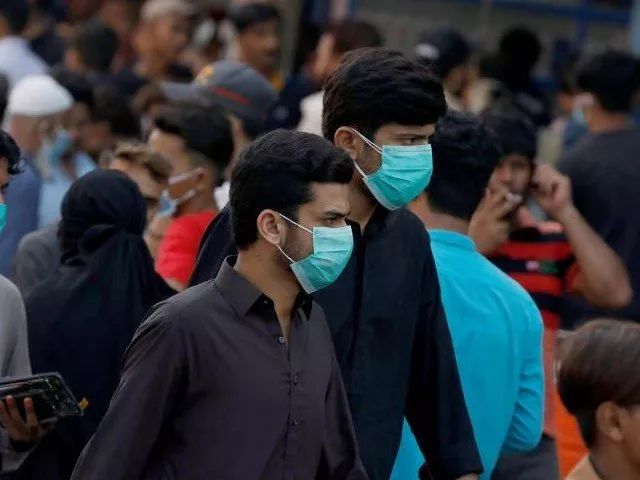Covid-19 and importance of data timeliness
Lack of data makes fight against economic, social problems highly challenging
NORTHAMPTON: As the Covid-19 pandemic continues to cause havoc across different parts of the world, we all have been keenly following the data that is updated on a daily basis, key statistics gathered around the world, the number of confirmed cases, deaths and recoveries.This open data has been immensely useful for researchers who have come up with policy relevant evidence of the effect of various measures for abating the disastrous impact of the pandemic.
A key source in this regard has been the Johns Hopkins Coronavirus Resource Centre, which provides a comprehensive world view of how the pandemic has unfolded with real-time data throughout the day. This article looks into how the timeliness of data collection and sharing is key and how if it were to be applied for other national economic and social variables, could prove to be a critical resource in making policies that could improve overall societal welfare.
Health data collection
How the data is collected and made public for the rest of the world? Timely Covid-19 data is produced by health workers, who submit diagnostic reports to local health departments.
The health departments record the cases in an administrative database. The relevant ministry publishes the data daily from the database and international bodies such as the World Health Organisation gather and aggregate these figures across countries.
This has also been implemented in the case of Pakistan with the creation of government of Pakistan’s health advisory platform, which is a good initiative in tabulating key statistics on the pandemic in the country as well as at the province level. The key is to act on it in a timely manner to avert any major disaster.
Data timeliness and Pakistan
If data on Covid-19 is available timely, why not extend this to development data? In general, developing countries including Pakistan face severe delays in making the data available at the right time.
A recent World Bank data blog has analysed that among low-income countries, less than 40% have data on poverty since 2015, almost three in 10 have not taken a population census in the past 10 years, and only 9% have monthly or quarterly production indices to track current economic activity.
This makes the fight against economic and social problems increasingly challenging. Similar is the case for Pakistan, where the population census conducted in 2017 after a passage of 19 years was fraught with disputes and is still only partially available online on the Pakistan Bureau of Statistics’ website. Timely data is crucial for governments to react quickly when a crisis occurs whether related to environment, health, finances or conflict.
With respect to the current pandemic, data timeliness has enabled countries to compare the possible trajectories that they are likely to face and scale the appropriate measures taken to fight the disease accordingly.
In Pakistan’s case, the pandemic also exposed the weaknesses in terms of data collection in the present system when countrywide lockdowns necessitated the need for cash transfers to the most vulnerable groups.
The pandemic necessitated data collection and registration at the household level for taking appropriate measures such as distributing ration bags to the needy.
To get to a world with timely development data and to implement evidence-based policy responses, countries must invest in statistical capacity and national data systems. The current pandemic should be taken as an opportunity to build the much-needed capacity that most developing countries lack to effectively deal with any crisis in the future.
The writer is a doctoral candidate at the Bartlett, UCL
Published in The Express Tribune, June 15th, 2020.
Like Business on Facebook, follow @TribuneBiz on Twitter to stay informed and join in the conversation.


COMMENTS
Comments are moderated and generally will be posted if they are on-topic and not abusive.
For more information, please see our Comments FAQ